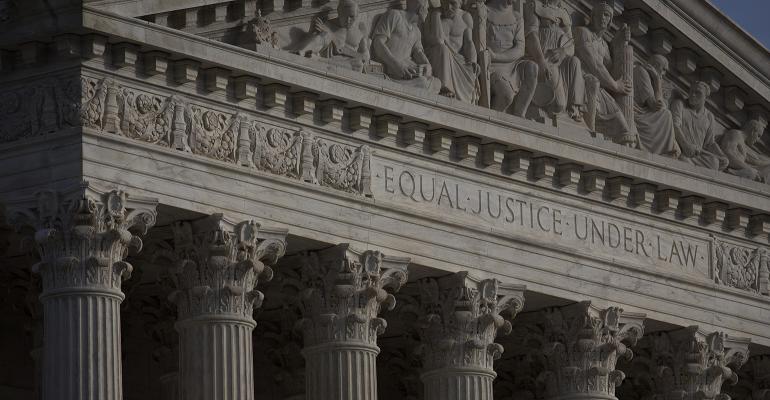By Andrew Chung
WASHINGTON, April 23 (Reuters) - U.S. Supreme Court justices on Monday appeared divided over a challenge to the constitutionality of the Securities and Exchange Commission's selection of in-house judges to enforce investor protection laws in a case involving a former radio host and investment adviser backed by the Trump administration.
The court heard arguments in an appeal by Raymond Lucia, who was given a lifetime ban from investment-related work by an SEC administrative law judge for misleading investors in his "Buckets Of Money" retirement wealth presentations. The case could expand the control by the president and political appointees over officials in various federal agencies.
California-based Lucia argued that the SEC exceeded its authority in its hiring of the judges, violating part of the U.S. Constitution that gives the president the power to appoint certain types of federal officials.
A ruling favoring Lucia could reverberate through the federal government, which has nearly 2,000 administrative judges who decide matters as varied as unfair trade practices, veterans benefits and patent infringement. Such a ruling could make it easier for these judges to be fired by political appointees.
Justices Elena Kagan and Stephen Breyer, both liberals, and Anthony Kennedy, a conservative, raised concerns about the need to protect the judges' independence and impartiality.
Kagan suggested administrative judges might need insulation from political pressure. "You want to ratchet that down," Kagan told Deputy Solicitor General Jeffrey Wall, arguing for the Trump administration. "Isn't that interfering with decisional independence?"
Breyer said the government's position that agency heads should be able to fire administrative law judges if they fail to follow agency policies might not guarantee the judges sufficient independence.
Conservative Chief Justice John Roberts suggested the judges need to be held more accountable because currently no one, neither the president nor the SEC, is responsible for their conduct or misconduct.
"The commission can say, 'Don't blame us. We didn't do it.' The president can say, 'Don't blame me. I didn't appoint them,'" Roberts said.
The dispute centers on the whether administrative law judges are merely SEC employees or are "inferior officers" who wield significant decision-making authority and should be covered by the Constitution's "appointments clause."
Inferior officers must be appointed by the president, the head of a federal agency or a court.
The SEC has said its judges are merely employees in part because their decisions are not final and still subject to review by the commission.
Republican President Donald Trump's administration, which has sought to roll back the power of agencies in a push toward deregulation, took the unusual step last November of switching sides in the case, no longer defending the SEC's actions and instead backing Lucia.
The case is being closely watched by the business community and corporate rights advocates beyond Wall Street. Some business groups complain that as the SEC's enforcement powers have expanded, it has sent more cases to its own judges rather than federal district courts, giving the agency an unfair "home court" advantage.
A ruling is due by the end of June.
(Reporting by Andrew Chung; Editing by Will Dunham)


